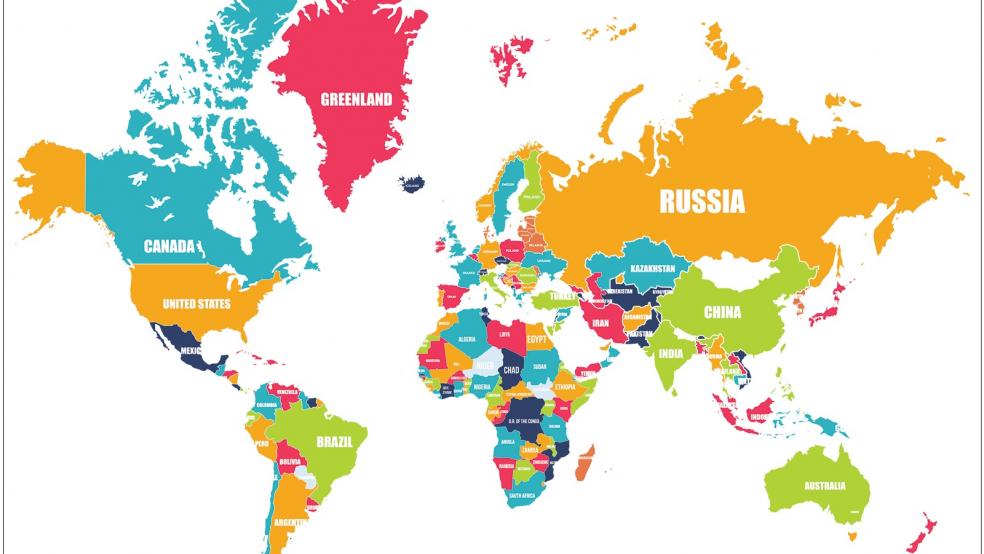Foreigners always watch U.S. elections, but rarely with the edge-of-the-seat suspense evident as the votes were tallied Tuesday. With Donald Trump’s dramatic victory, they’re as much in the dark as we are. Pick your foreign policy: What’s he going to do?
French President François Hollande immediately asserted, somewhat courteously, that Trump’s election “opens a period of uncertainty.” Earlier this year, Hollande did not hold back: “His excesses make you want to retch.”
Related: Factbox: Foreign Leaders' Criticism, Praise of U.S. Republican Candidate Trump
Angela Merkel is just as guarded. Pointedly mentioning “respect for the law and human dignity,” the German chancellor declared, “I offer the next president of the United States close cooperation on the basis of these values.”
Vladimir Putin is so far among a handful of welcoming world leaders in evidence. “Russia is ready and wants to restore our relations with the U.S.,” Putin said within hours of Trump’s triumph. He added, “We understand the way to that will be difficult, taking into account the current state of degradation of relations.”
Wariness, expectation, a lot in between: The world is still on the edge of its seat. Here are five foreign policy challenges Trump will face right away.
• Relations with Russia. Trump’s willingness to work with Moscow when shared interests make this possible is among his strongest—and clearest—points. But what will this look like?
While Putin and Trump had not spoken as of Thursday, contact short of a summit is a near-term likelihood.
Related: With an Eye on Russia, the US Reinforces Its Defense of Northern Europe
Apart from this, the next two policy issues offer partial answers.
• Syria. Secretary of State Kerry tried and failed numerous times to develop a collaborative arrangement with Moscow to find a solution to the Syria crisis and credit to him for the effort. But he hadn’t mended Washington–Moscow ties sufficiently to get this done.
If Trump does cut a deal, what now seems hopelessly out of reach may become possible. If the Trump administration calls for military cooperation, will the Pentagon cooperate any more than it did in Kerry’s case?
• Trans–Atlantic ties. Given how unsettled the leading European allies are, the task of reassuring them is a priority. In particular, Trump will have to clarify the U.S. commitment to NATO’s mission, as well as the budget burden.
In Trump’s favor: Eased relations between the U.S. and Russia could play well in Europe, given how many European Union members—the French and Italians in particular, as well as the German business community and the left side of Merkel’s coalition government—have had enough of Washington’s costly sanctions regime. Trump’s liability: Depending on his foreign policy appointments, he may or may not prove up to the complexities of trans–Atlantic diplomacy.
Related: Trump Victory Likely to Empower Iran's Hardliners, Worry Investors
• Iran. Trump the dealmaker has vigorously denounced the Obama administration’s agreement governing Iran’s nuclear program from Day 1 as “the worst deal I’ve ever seen in my life.” Now that he’s in a position to scuttle it, will he do so?
He has to tread carefully because tearing up the pact will have huge implications for Middle East stability based on Iran’s reaction. Also, repudiating the pact, which was negotiated with Tehran as a team effort involving three E.U. allies, would prove monumentally alienating to the Europeans. Trump’s biggest problem here: Except Israel, the rest of the world wants this deal to stick.
• The TTP and China. The Trans–Pacific Partnership, the shiniest ornament in Obama’s grand “pivot to Asia,” may well have died Tuesday night. Trump has plenty of political allies among Democrats opposed to the deal, so no problem there.
But the Obama administration viewed the TTP as primarily a strategic device in its response to China’s emergence as a Pacific power. This means Trump will have to script a serious China policy quickly, and he’s nowhere near developing one at the moment.
Related: China State Media Warns Trump Against Isolationism
We know his thinking is less militaristic than Clinton’s, and Beijing has occasionally signaled its attenuated appreciation on this point just as Moscow has. Trump, by comparison, is unmolded clay, even if he’s mistaken about numerous aspects of the relationship. He complains about China’s manipulation of exchange rates, for instance, but that hasn’t been at issue for years; even the IMF would concur.
You have to hope Trump will “learn on the job”—that is, come around to sensible, non-scapegoating positions with some nuance to them once he starts talking directly to the Chinese leadership.
Uncertainty is rarely welcome in the foreign policy sphere, and Trump starts off by giving the world plenty. His performance abroad could turn out to be balls-up, as the English say, but there is a decent chance that his foreign policies will give Americans and others less to worry about than meets the eyes of many at the moment.






